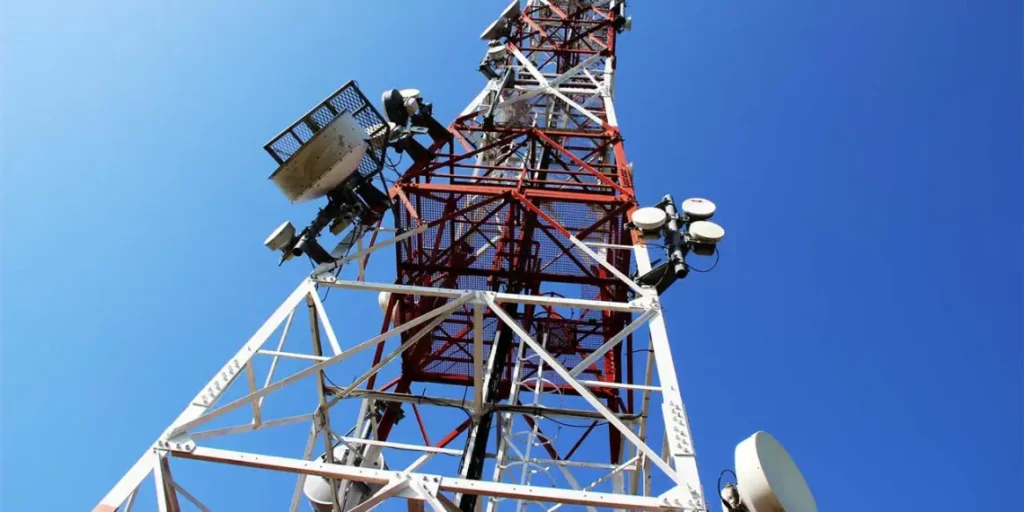In a dramatic shake-up, Nigeria’s telecommunications sector has retrenched 383 employees over the past year, a move driven by an alarming 85 per cent surge in operating expenses. The revelation comes from the latest Nigerian Communications Commission’s (NCC) end-of-year reports, painting a stark picture of the growing financial pressure on telco firms.

Table of Contents
Climbing Costs Squeeze Telecom Firms
According to the NCC’s performance reports for 2023 and 2024, total operational costs (OPEX) for licensed telecom operators leapt from N3.16 trillion in 2023 to N5.85 trillion in 2024 — an 85.35 per cent year-on-year increase.
The NCC attributes this sharp cost escalation to several interlinked factors:
- High Right-of-Way (RoW) charges, particularly for laying fibre cables.
- Inflation and macroeconomic strain have eroded purchasing power and raised baseline expenses.
- Foreign exchange volatility, which makes imported equipment more expensive.
- Escalating energy costs, especially for diesel-powered base stations, are an often-overlooked but significant burden.

Job Cuts: Who Was Affected
The 383-job retrenchment isn’t spread evenly across the sector. Here’s how it breaks down:
- GSM operators — fell from 7,212 to 6,658 staff.
- Internet Service Providers (ISPs) — cut staff from 5,589 to 5,473.
- Value-Added Services (VAS) — trimmed from 813 to 713.
- Fixed-line operators bucked the trend slightly, growing from 268 to 272 workers.
On the flip side:
- Collocation and infrastructure-sharing providers expanded their workforce from 1,574 to 1,751.
- The “Others” category (a catch-all for different telecom roles) also grew, from 2,426 to 2,632.
Despite those gains, it wasn’t enough to offset the downturn in core segments.
Subscriber Decline & CAPEX Surge
The job losses coincided with a slump in active voice subscriptions. As of December 2024, the number of active voice users dropped sharply to 164.9 million from 224.7 million in 2023 — a decline of 26.61 percent.
A major factor in this decline: the enforcement of NIN-SIM linkage, which led to the removal of SIM cards not linked to national identity numbers.
This subscriber drop also dragged down teledensity, which fell from 103.66% in 2023 to 76.08% in 2024, based on projections from the Nigerian Population Commission.
Paradoxically, even as fewer people subscribed, telecoms poured more into infrastructure. Their capital expenditure (CAPEX) surged from N990.55 billion in 2023 to N2.90 trillion in 2024.
That investment translated into tangible expansion:
- Number of towers increased to 39,880 from 39,356.
- Base stations grew from 137,992 to 145,141.
- Fibre deployment also saw a strong push.

Revenue Growth, But Sustainability Questions Loom
Despite the cost pressures, the telecom industry reported strong revenue growth in 2024. Total revenue rose from N5.30 trillion in 2023 to N7.67 trillion — a 44.7% increase year on year.
Still, operators admit that the rising operational burden is constraining their long-term plans. According to NCC data, expenses linked to energy, foreign exchange, and regulatory charges are complicating network rollout and profitability.
The NCC also highlighted that telecom operators contributed 14.40% to Nigeria’s GDP in Q4 2024, slightly up from 14.00% in Q4 2023. The regulator noted that a national GDP “rebasing exercise” is expected to more accurately reflect the growing digital economy.
Join Our Social Media Channels:
WhatsApp: NaijaEyes
Facebook: NaijaEyes
Twitter: NaijaEyes
Instagram: NaijaEyes
TikTok: NaijaEyes




